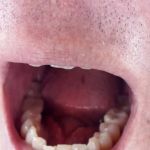Managing Emergency Dental Care for Senior Citizens
Why Emergency Dental Care for Senior Citizens Is So Important
As we age, our dental health needs change. For seniors, dental issues can become more frequent and complicated, often requiring quick and effective care. I learned this firsthand when my grandmother, who was in her late 80s, experienced a dental emergency one evening. It was the middle of the night, and she called me in distress after breaking a tooth while eating. This incident led me to realize how crucial it is to understand the steps for managing dental emergencies for senior citizens. In this article, I’ll walk you through common dental emergencies for seniors and share tips on how to handle them.
1. Common Dental Emergencies in Senior Citizens
For seniors, dental emergencies can range from a sudden toothache to more severe issues like broken teeth or gum infections. Some of the most common dental problems among the elderly include:
- Tooth Decay: Seniors are more susceptible to tooth decay due to dry mouth, which often comes with aging. This can result in sudden toothaches or even tooth loss if untreated.
- Broken or Chipped Teeth: As we age, our teeth may become brittle, making them more prone to breakage. Seniors might experience this during meals or accidents.
- Loose or Lost Fillings: Fillings in older adults can loosen over time, causing discomfort or leading to a dental emergency.
- Gum Disease: Gum disease is prevalent among seniors, and if not treated quickly, it can lead to infection and severe discomfort.
- Dry Mouth: Many seniors suffer from dry mouth due to medications, which can increase the risk of cavities and other dental issues.
These emergencies often come with unique challenges for seniors due to their general health conditions and the medications they might be taking. Quick action is necessary to minimize discomfort and prevent further complications.
2. How to Handle a Dental Emergency for a Senior Citizen
When faced with a dental emergency, staying calm and taking immediate steps is key. Here are some of the actions I took when my grandmother’s tooth broke:
1. Assess the Situation
The first step is always to evaluate the severity of the situation. If your loved one is in significant pain or bleeding heavily, this is an urgent situation. In my grandmother’s case, the tooth was chipped but not bleeding, so I could wait until morning to take her to the dentist. If the tooth is knocked out or bleeding, however, you may need to seek emergency care immediately.
2. Manage Pain and Discomfort
Managing pain is important to help seniors stay calm. Over-the-counter pain relief medications, like ibuprofen or acetaminophen, can provide temporary relief. For more severe pain, it’s best to consult with a healthcare provider before administering any stronger medication.
If a tooth is broken or cracked, applying a cold compress can help reduce swelling and alleviate discomfort. This method was especially helpful for my grandmother when she broke her tooth.
3. Preserve the Tooth
If a tooth is completely knocked out, it's essential to preserve the tooth and get to a dentist as quickly as possible. You should hold the tooth by the crown (not the root) and place it in a glass of milk or a tooth preservation solution. This gives the tooth the best chance of being successfully re-implanted. Thankfully, this wasn’t necessary in my case, but it’s a crucial step to remember if your loved one experiences such a situation.
3. When to Seek Professional Help
Not all dental issues need immediate attention, but there are certain situations when you should take your loved one to a dentist or emergency room without delay. If you experience any of the following, professional care is necessary:
- Severe Bleeding: If there is uncontrollable bleeding from the mouth, this is a medical emergency.
- Broken or Knocked-Out Tooth: If the tooth cannot be saved at home, it’s important to seek immediate professional care.
- Infection or Swelling: If the gums are swollen, red, or there is pus or fever, there may be an infection, which needs prompt attention.
- Severe Pain: If the pain is unbearable or not relieved by over-the-counter painkillers, it may be time to consult with a dentist.
For seniors with pre-existing conditions like heart disease or diabetes, any dental issues should be taken seriously. I remember calling my grandmother’s dentist at 2 a.m. to discuss her symptoms. They provided advice on how to manage her pain until the office opened in the morning, which helped me feel confident about her care until we could visit the dentist.
4. Preventative Measures to Reduce Dental Emergencies
As a caregiver, prevention is always better than dealing with emergencies. Here are some tips I’ve used to help my grandmother maintain her dental health and avoid unnecessary emergencies:
- Regular Dental Check-Ups: Scheduling bi-annual dental visits is essential for seniors. Preventive care can catch issues like cavities or gum disease early, reducing the likelihood of emergencies.
- Good Oral Hygiene: Ensuring your loved one brushes and flosses regularly is crucial. Dry mouth can make it harder for seniors to maintain oral hygiene, so you might need to help with brushing or recommend special products like saliva substitutes.
- Diet and Hydration: Encourage a diet rich in calcium and other nutrients to promote strong teeth and bones. Drinking water throughout the day helps keep the mouth moist and wash away food particles.
- Medication Management: Some medications cause dry mouth, which can lead to tooth decay. Talk to your doctor about alternatives or ways to manage these side effects.
By following these steps, you can significantly reduce the chances of a dental emergency for seniors and ensure they maintain good dental health for years to come.
If you need expert dental care for seniors or have questions about emergency dental services, visit Dentistry Toothtruth to find the best clinics and recommendations to keep your loved ones' smiles healthy and happy.







 Dental Care at Dr. Phillips4.0 (205 review)
Dental Care at Dr. Phillips4.0 (205 review) Alameda Dental Group4.0 (169 review)
Alameda Dental Group4.0 (169 review) Pediatric Dental Associates of Randolph4.0 (1772 review)
Pediatric Dental Associates of Randolph4.0 (1772 review) Chicago Implant Studio4.0 (60 review)
Chicago Implant Studio4.0 (60 review) Grady Dental Care5.0 (281 review)
Grady Dental Care5.0 (281 review) Babylon Dental Care4.0 (388 review)
Babylon Dental Care4.0 (388 review) The Importance of Oral Health Education During Pregnancy for a Healthy Pregnancy
The Importance of Oral Health Education During Pregnancy for a Healthy Pregnancy Best Tips for Brushing Your Teeth Properly for Healthy Gums: Essential Techniques for Oral Health
Best Tips for Brushing Your Teeth Properly for Healthy Gums: Essential Techniques for Oral Health Why Skipping Dental Checkups Can Lead to Bigger Oral Health Problems
Why Skipping Dental Checkups Can Lead to Bigger Oral Health Problems Advantages of Porcelain Dental Restorations
Advantages of Porcelain Dental Restorations How Can Diabetes Cause Tooth and Gum Problems? Preventing and Managing Oral Health Issues
How Can Diabetes Cause Tooth and Gum Problems? Preventing and Managing Oral Health Issues Healthy Habits for Promoting Good Oral Health and Hygiene: Tips for a Healthy Smile
Healthy Habits for Promoting Good Oral Health and Hygiene: Tips for a Healthy Smile